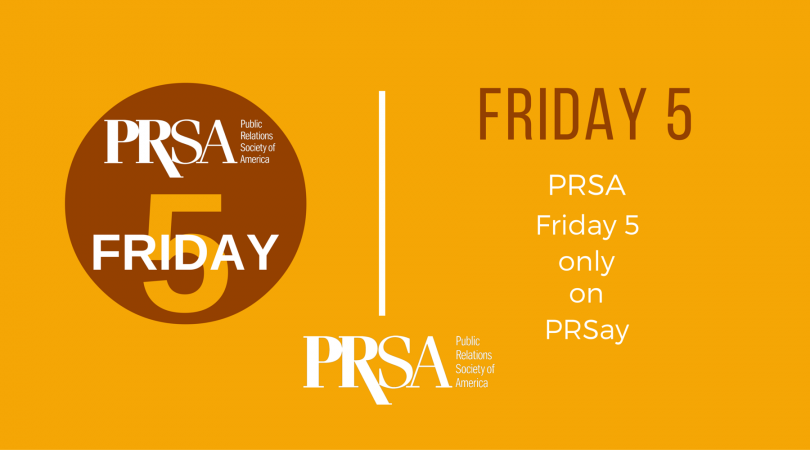After long debates, number crunching and a lot of convincing, your brand is taking the plunge: you’re hiring your first celebrity spokesperson. Your team has spent countless hours researching the right spokesperson and has made sure that his or her image aligns with your brand. Your legal and accounting departments have dealt with all the intricacies of celebrity contracts. You’ve brought in a media trainer and shared meticulously prepared key messages. However, one small misstep and something completely out of control, like ill-conceived social media post, can leave you and your company in hot water.
hiring your first celebrity spokesperson. Your team has spent countless hours researching the right spokesperson and has made sure that his or her image aligns with your brand. Your legal and accounting departments have dealt with all the intricacies of celebrity contracts. You’ve brought in a media trainer and shared meticulously prepared key messages. However, one small misstep and something completely out of control, like ill-conceived social media post, can leave you and your company in hot water.
In this week’s Friday Five — PRSA’s take on the week’s biggest news stories — we’ll look at the Instagram post that had the FDA sending Kim Kardashian a warning letter last week, and share four other lessons for PR professionals.
Here’s What We Learned This Week:
The FDA Doesn’t Mess Around
The numbers are breathtaking. Kim Kardashian has an astounding 42.8 million followers on Instagram alone. With a baby on the way, she seems like the ultimate celebrity spokesperson for a health care brand promoting a drug for morning sickness. However, without proper due-diligence, a letter from the US Food and Drug Administration could follow a simple Instagram post.
Last week Kardashian posted a photo with a caption endorsing Diclegis morning sickness pills, which is made by pharmaceutical company Duchesnay USA. Kardashian made several missteps with her post, including failing to disclose that she was paid by the company and not mentioning any of the side effects associated with the product. At the FDA’s request Kardashian took the post down, but not before it gained approximately 434,000 likes. As communication professionals we must properly train all spokespeople…and be prepared if they go rogue. We must also be prepared for the bad press that might follow.
Cyber Attackers Set Their Sights on Newswires
When we label our press releases embargoed and submit them to our newswire of choice, we trust that it will stay under wraps until we indicate it should “go live.” When releasing earning statements and financial news, it’s not only important, but it also has legal ramifications. Therefore, when the Security and Exchange Commission charged 32 individuals with hacking wires services to view press releases before their content was made public in order to trade off the information they obtained, people began to question newswire security.
The major business wires have reiterated their commitment to security and protection. Some have also hired cybersecurity firms to test its systems as an additional step to protecting content. It will be interesting to see how this impacts the financial communication sector and guidelines when releasing proprietary information.
There’s Currently a “Humble CEO” Trend
People respond in different ways to different personalities. If you’ve been following the Republican race to the presidency, you know that this is certainly true. Lately, the public is responding more to the “humble” CEO, rather than the almighty, powerful, headline-grabbing, unwavering CEOs of the past.
The Huffington Post’s Emily Peck explains: “Chief executives who display humility are regarded more highly in the business world, according to a survey of 1,700 executives worldwide earlier this year. More than 50 articles mentioned “CEO humility” in 2014, the survey from public relations firm Weber Shandwick found. That’s about twice the average number for each year over the past decade. [Sundar] Pichai (the new Google CEO) has been described as “empathetic” and a “nice guy,” two key traits for a humble CEO.”
For those who ghost write for their CEOs and handle executive communication: do you agree with this article? Do you think this trend is temporary or here to stay? Let us know in the comments section.
Twitter isn’t the Right Outlet to Overreact about a Negative Story
Writer Nancy Jo Sales outlined dating app Tinder in Vanity Fair last week and by its social media response, Tinder didn’t appear to appreciate what Sales had to say. Her article, Tinder and the Dawn of the Dating Apocalypse and subsequent tweets stating that 30 percent of users are married people looking to hook up, prompted a Twitter storm by the dating service.
Tinder shot off more than 30 tweets debating the validity of Sales sources. Social media rants may be OK for an individual, but for a brand it appeared to be very unprofessional and ineffective. Many people following along tweeted that they would read the article because they found out through Tinder’s complaints. They also left us scratching our heads with tweets like this:
Talk to our many users in China and North Korea who find a way to meet people on Tinder even though Facebook is banned.
— Tinder (@Tinder) August 11, 2015
Was Tinder’s response a way to handle PR in the social media age? Or was it completely uncalled for?
Journalists LOVE PR Professionals (Sarcastically)
Public relations professionals are used to journalists dodging calls and ignoring emails, so when a group of public relations professionals received the simple response of “I love you,” in response to a pitch, many were at a loss for words. Writer Ralph Jones spent a month replying to every email pitch he received with those sought after words of endearment.
His blog post highlights some of his exchanges with PR professionals, and while some are hilarious, it does shed a light on worst practices in media relations. Are they not reading the email? Or do they simply want to sell their pitch no matter what? Here’s what Jones concluded: “The experiment taught me a lot about email etiquette and about the nature of PRs. In most cases the exchange was simply exactly the same as usual, as though I hadn’t professed my love for the PR. They just flat-out ignored what I’d said and carried on trying to sell their product.”
If he’s right, we need to do a much better job on behalf of our clients and ultimately our industry.








[…] Ralph Jones recently created some buzz (and a mention in PRSA’s Friday Five) after blogging about an experiment in which he replied to every PR pitch with “I love […]
The lessons to be learned from the Kardashian FDA whoops is not just about proper training of the celebrity spokesperson and being prepared if they go rogue, it’s about the PR pro needing to understand compliance issues and managing this account accordingly.